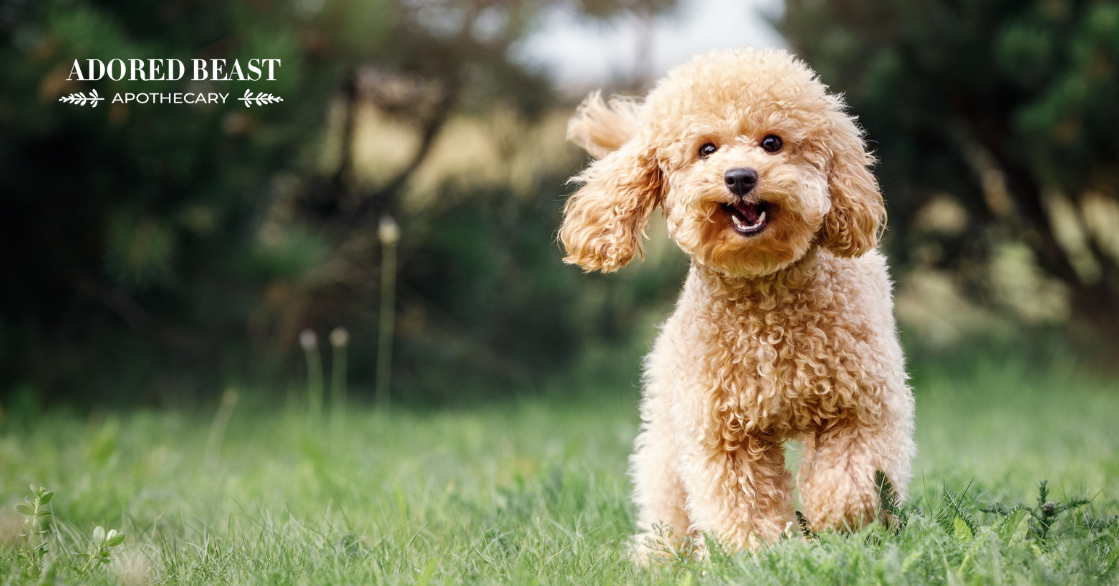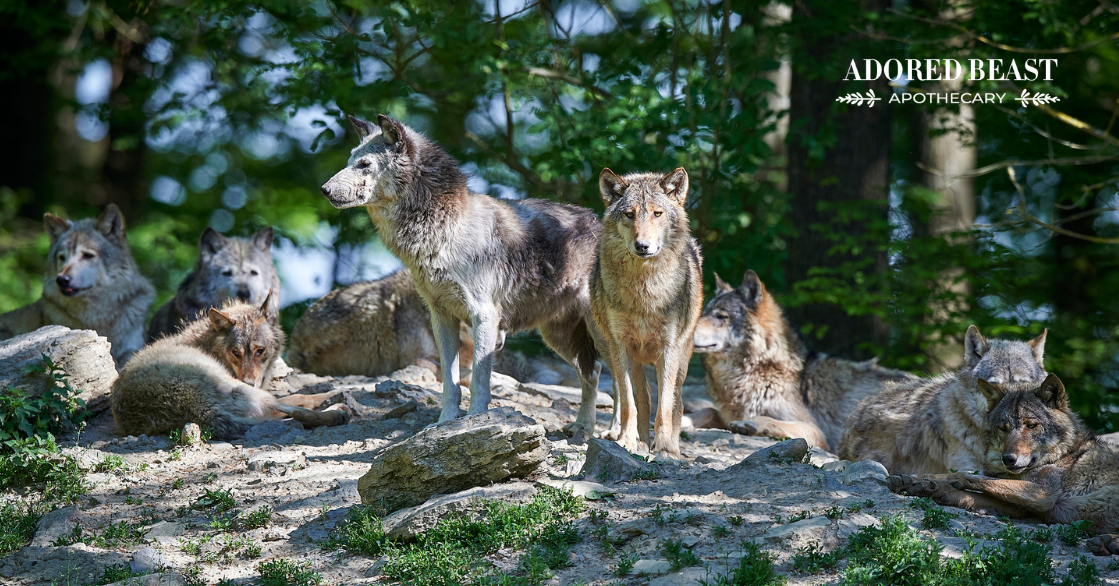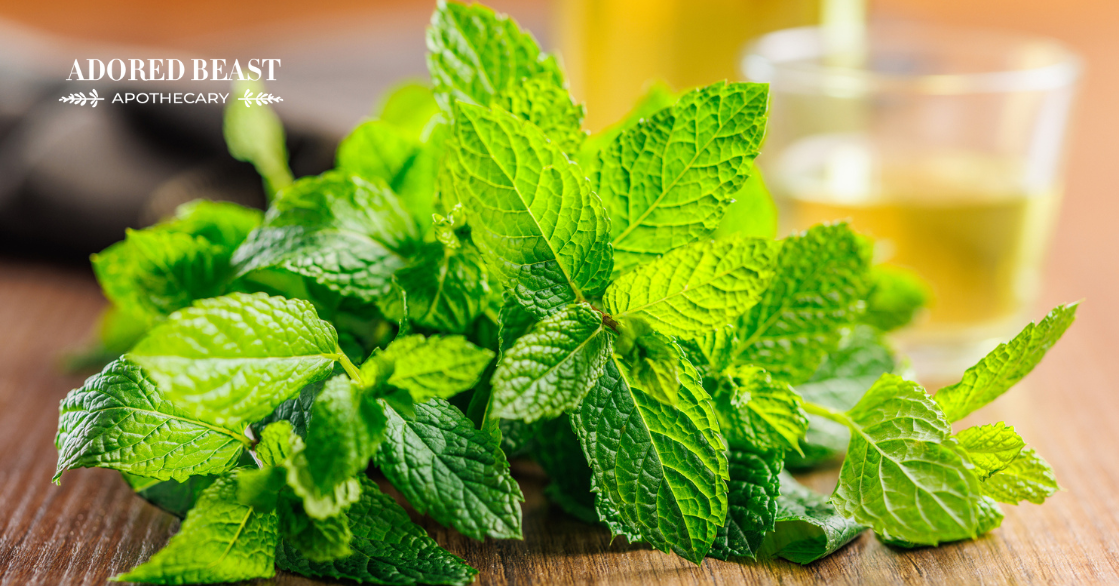Almost 25 years ago when I started my dive into gut health and the microbiome, I knew I had to find a prebiotic that was different than what was being used in human health. After all, we are different – especially our guts!!
So I went into research mode and tried to figure out how a dog, cat, or horse would get probiotics in nature. Well, horses are a bit different because they eat a lot of dirt and a ton of fibre, but I had no idea they shared the same probiotic as a wolf or wild cat would. Though the dog or cat species did not really consume a prebiotic, the prey they consumed most definitely did! So I researched everything I could think of: deer, rabbits, mice, rats, beavers pheasants, birds of all sorts… and the one thing they ate that was a prebiotic was tree bark! Enter Larch Arabinogalactan for dogs, cats, and horses! 🙂 Horses fall into the deer, elk, bison category so it is equally as important to them!
What is Larch Arabinogalactan for Dogs, Cats, and Horses?
Larch arabinogalactan is a natural substance that comes from the bark of the larch tree (Larix occidentalis). Arabinogalactan itself is found in many plants, but it’s found in especially high concentrations in the larch tree.
Larch is a type of digestible fiber, a sugar in fact. Technically, it’s a polysaccharide (two sugars in a chain). Polysaccharides are complex long chain carbohydrates that are very important for nutrition.
What’s to Love About Larch?
Larch has been used as a natural medicine to aid in several different health conditions for many, many years. And thanks to its potent biological activity, immune-enhancing properties, and peculiar solution properties, this unique dietary fibre is garnering increased attention as a clinically useful nutraceutical agent.
Polysaccharide-rich foods in general have been used for centuries around the globe because of their many health benefits. Certain polysaccharides are especially popular because of how they support the immune system and because they fight inflammation and tumor growth.
There are so many potential health benefits of this amazing plant. Here are just a few of the conditions it’s good for:

- Asthma
- Constipation
- Ear infections
- Flu
- High cholesterol
- Liver cancer
- Liver disease
- Pneumonia
As if that isn’t impressive enough, research even shows that, in humans, it increases the body’s potential to defend against the common cold! I’d say that’s a pretty big claim to fame!
The Benefits of Larch for Our Pets
As we mentioned, we’re big fans of larch.
In dogs, research shows that it can:
- Enhance natural killer cells and macrophages
- Boost the secretion of pro-inflammatory cytokines
- Increase intestinal bacteria (such as Lactobacillus)
- Prevent cancer cells in the liver from growing
One of the biggest draws of larch arabinogalactan for dogs (or cats or horses…) is how it works to improve gut health.
The latest research in human and animal medicine points to the gut being responsible for more than 80% of the immune system! The main component of a healthy gut is the friendly bacteria that live there (probiotics). This bacteria combats bad bacteria. They are the gatekeepers that stop intruders and keep the mucosal lining healthy so the body receives its vital nutrition.
Arabinogalactans are prebiotics, so they feed the beneficial bacteria colonies in your animal’s gut. Without prebiotics, probiotics would just starve and die. Good gut health does wonders for your pet’s overall health. It helps keep the immune system stable and helps the body fight off harmful bacteria.
Arabinogalactan is also an excellent source of dietary fiber. In fact, the FDA has approved it as a dietary fiber. Research shows that Larch can increase the production of short-chain fatty acids, principally butyrate and propionate, and has been shown to decrease the generation and absorption of ammonia. Evidence also tells us that when dogs consume larch arabinogalactan, it has a significant effect on their gut microflora, specifically increasing life enhancing beneficial gut bacteria.
But good gut health isn’t the only reason we believe larch is such a vital part of a healthy diet…
Larch Arabinogalactan for Dogs, Cats, and Horses: Fighting Cancer
These days, so many of our beloved beasts are being diagnosed with cancer. Dogs are at an alarming ratio of over 50%. It’s heartbreaking, and in our opinion avoidable in many cases. Thankfully, research suggests that larch can play an important part in fighting back against this disease in our canine companions.
Larch actually helps to stimulate the immune system and block the spread of cancer cells. It does this by activating macrophages and natural killer (NK) cells.These are two really important immune cells involved in the process of fighting cancer.
Decreased NK cell activity is linked to a variety of chronic diseases, including cancer. When you increase these cells in your pet’s body, you’re building up a strong defence – these NK cells kill invading cells (yes! that means cancer cells) by forcing them to commit suicide.
Macrophages are important too! They seek out and identify cancer cells and eat them.
Oh! And remember earlier when I mentioned that larch can increase the production of the short-chain fatty acid butyrate? Well, we know from research that butyrate can cause apoptosis (cancer cell death) and prevent and slow cancer growth!
Adding Larch to Your Animal’s Diet
Arabinogalactan is found in the highest quantities in the larch tree.
That said, it’s also found in small amounts in some foods. Our favorites for dogs and horses are coconut and carrots. It’s also found in many herbs, such as echinacea and astragalus.
The thing is, you need to eat a lot of these foods and herbs to get the full benefits, so it’s best to go with a larch supplement. That’s why many of our products include larch as the main prebiotic, including Fido’s Flora, Love Bugs and Healthy Gut. Larch is for sure more costly than the majority of probiotics out there but so worth it when you see read the research of the benefits.
I always say our probiotics have one eye on gut health and the other on cancer, and larch is one of the big players in this.
Now you know all about larch and why it’s so good for your furry family members. So, what are you waiting for? Start adding it to your dog’s diet as part of a healthy supplement regimen.












